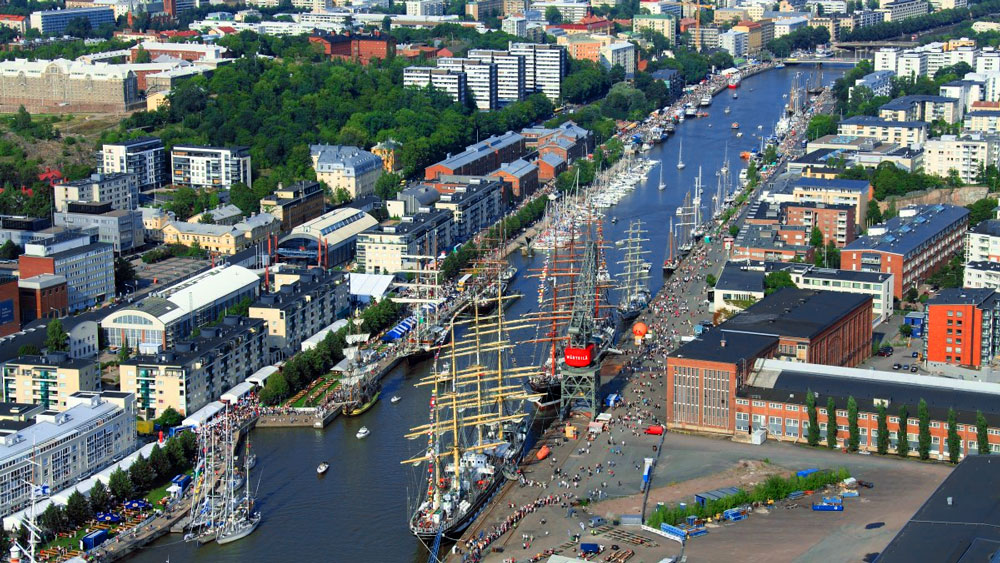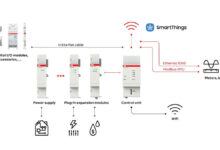Finland leading the way in Europe in developing smart cities
Carbon neutral by 2050
Finland is leading the way in Europe in terms of smart city development, using its resources to create new business models and efficient city planning. Start-ups and companies are assisting in this transformation of smart cities, honing in on sectors such as environment, mobility, economy, and living. As a way to tackle urban environmental challenges and share common practices, Finland’s six largest cities have partnered up to form a platform dubbed ‘The Six City Strategy.’
Turku, the leading voice for climate change
According to a report by Flanders Investment & Trade, “Finland aims to be carbon neutral by 2050.” Turku, a city of 182,000 that sits on the southwest coast, aims to become carbon neutral by 2029—one of the most ambitious plans on the globe—with a focus on sustainable energy transition, circular economy, and smart mobility. Thanks to the city’s Climate Plan, more than half of Turku’s energy is produced from renewable sources, and coal is on the way to being phased out by 2025. As for carbon-neutral transport, the city is improving conditions for cycling and walking, while also turning public transport itself into a ‘completely carbon neutral service.’
“Public transport will be developed to an even better direction, and the whole travel chain will be attached to it in a manner that makes mobility effortless and comfortable. In practice, a carbon neutral, large-capacity public transport system will support both the Climate Objective and the development of the city in a broader sense,” Public Transport Director Sirpa Korte explains.
Solutions for a carbon-neutral city are just one of the impacts of Turku’s involvement in a platform like ‘The Six Strategy,’ as it shares both practices and challenges with other members from Finland in an effort to solve national—and global—issues.
Today 78% of the European citizens live in cities, where 85% of the EU’s GDP and 90% of all innovations are generated. Accordingly, 70% of all CO2 emissions are of city-origin. As cities are being developed in order to cope with increasing demands and challenges created by urbanization, smart solutions are required.
Finland is one of the leading European countries in developing smart cities. The overall purpose of transition towards smarter city platforms is to save inhabitants’ time in a sustainable way, improve their quality of life and create new business models, know-how and jobs. Efficient city planning and development have been in focus for many years in Finland. Even, some of the technological structures are unique on world scale.
For example, Helsinki produces electricity, district heating and cooling by a combined heat and power generator in a single process which requires significantly less fuel than separate productions would do. Both electricity and heat are distributed to 90% of the city’s houses, making it a rare solution.
Finnish cities are especially smart in terms of taking inhabitants and users into account. High level of interaction is emphasized and people are encouraged to participate actively in the development of smarter and sustainable city platforms. In addition, an increasing number of start-ups and other companies are involved in transformation process of smarter environment, mobility, governance, economy and living.
Smart cities are globally a strongly growing market and it is estimated that it will be worth 1.3 trillion EUR by 2020. As the progress is ongoing and the market is extremely fragmented, it is impossible to give detailed numbers in terms of economic impact and number of jobs it creates in Finland. However, it is estimated that smart cities will have a remarkable impact in Finnish economy and the market will grow to billions of euro.
The Six City Strategy
The six largest cities of Finland (Helsinki, Espoo, Vantaa, Tampere, Oulu and Turku) together have facilitated an open innovation platform called ‘The Six City Strategy’, which consists of common development of smart solutions and implementation of experimental projects intending to tackle challenges related to urban environment. These cities cover 30% of the Finnish population and the whole urban community participates in developing and testing of innovative concepts. The Strategy was launched in 2014. 26 projects with a total budget of 45 million EUR have been executed ever since.
The strategy plays an essential role in boosting Finland’s economy and competitiveness and implements the EU-level territorial development instrument ITI-Integrated Territorial Investment in Finland. The managing authority of the instrument is the Ministry of Economic Affairs and Employment. As Finland aims to be carbon neutral by 2050, these cities act as pilots in the transition.
Companies can freely experiment their innovative solutions in these six cities. All data, experiences and standards are shared between stakeholders. In fact, Helsinki was chosen as the best Open-Data City in the World owing to the platform called ‘Helsinki Region Infoshare.’ It publishes all of its data on traffic, city planning and real estate, construction, culture, economy and taxation, education and training, environment and nature, health, housing, information technology, jobs and industries and law in formats that make it easy for software developers, researchers, journalists and others to analyse, combine or turn it into web-based or mobile applications.






